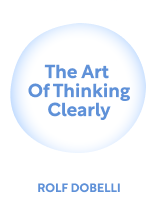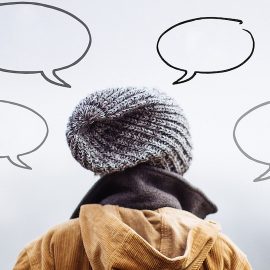

This article is an excerpt from the Shortform book guide to "The Art of Thinking Clearly" by Rolf Dobelli. Shortform has the world's best summaries and analyses of books you should be reading.
Like this article? Sign up for a free trial here .
What is the endowment effect? Why does it occur?
The endowment effect is the tendency to assign a higher value to an item because it belongs to you. The endowment effect stems from loss aversion. Once something is in your possession, you fear losing it, which makes you value the item more.
Keep reading to learn about the psychology behind the endowment effect.
The Endowment Effect
What is the endowment effect? The endowment effect is the first illogical shift in your valuation of an item—when you own an item, you subconsciously increase its value simply because it’s yours.
The endowment effect makes buying and selling things difficult, Dobelli adds, because you inflate the value of an item to be higher than others value it. You’ll even turn down generous offers for the item because you’ve mistakenly increased its value so much.
The endowment effect also influences people who don’t own an item yet, Dobelli says. Even the anticipation of owning an item can make you subconsciously increase its value, especially if you’re in competition for the item. (Shortform note: This tendency is called “virtual ownership.” It’s manipulated through advertisements, which let you imagine ownership of an item by showing you what it’s like to own it, and trial periods, which let you own an item for a limited time.)
How can you overcome the endowment effect? Dobelli suggests thinking of your possessions as things you only have temporarily. This lessens your sentimental attachment to the items.
| Overcoming the Endowment Effect: Think Like a Vendor? While Dobelli believes the endowment effect influences anyone who owns an item, others argue that it only activates when you’re going to use the item. If you have an item for the sole purpose of exchanging it, the endowment effect doesn’t apply. This is how vendors are immune to the endowment effect and can sell goods at fair prices. Since accurately valuing and selling items is difficult only when they’re personal items, if you avoid attachment by viewing your belongings like a vendor views their stock, you’ll have a more accurate idea of their value. However, avoiding connection to items in this way may harm your well-being. Valued belongings become an extension of your identity and a way to express your personality, and preventing those connections from forming can make you feel stifled and unable to be yourself. |

———End of Preview———
Like what you just read? Read the rest of the world's best book summary and analysis of Rolf Dobelli's "The Art of Thinking Clearly" at Shortform .
Here's what you'll find in our full The Art of Thinking Clearly summary :
- A detailed look at the most common logical fallacies that inhibit decision-making
- How to recognize and overcome these fallacies to make better decisions
- Why you value things for arbitrary reasons






